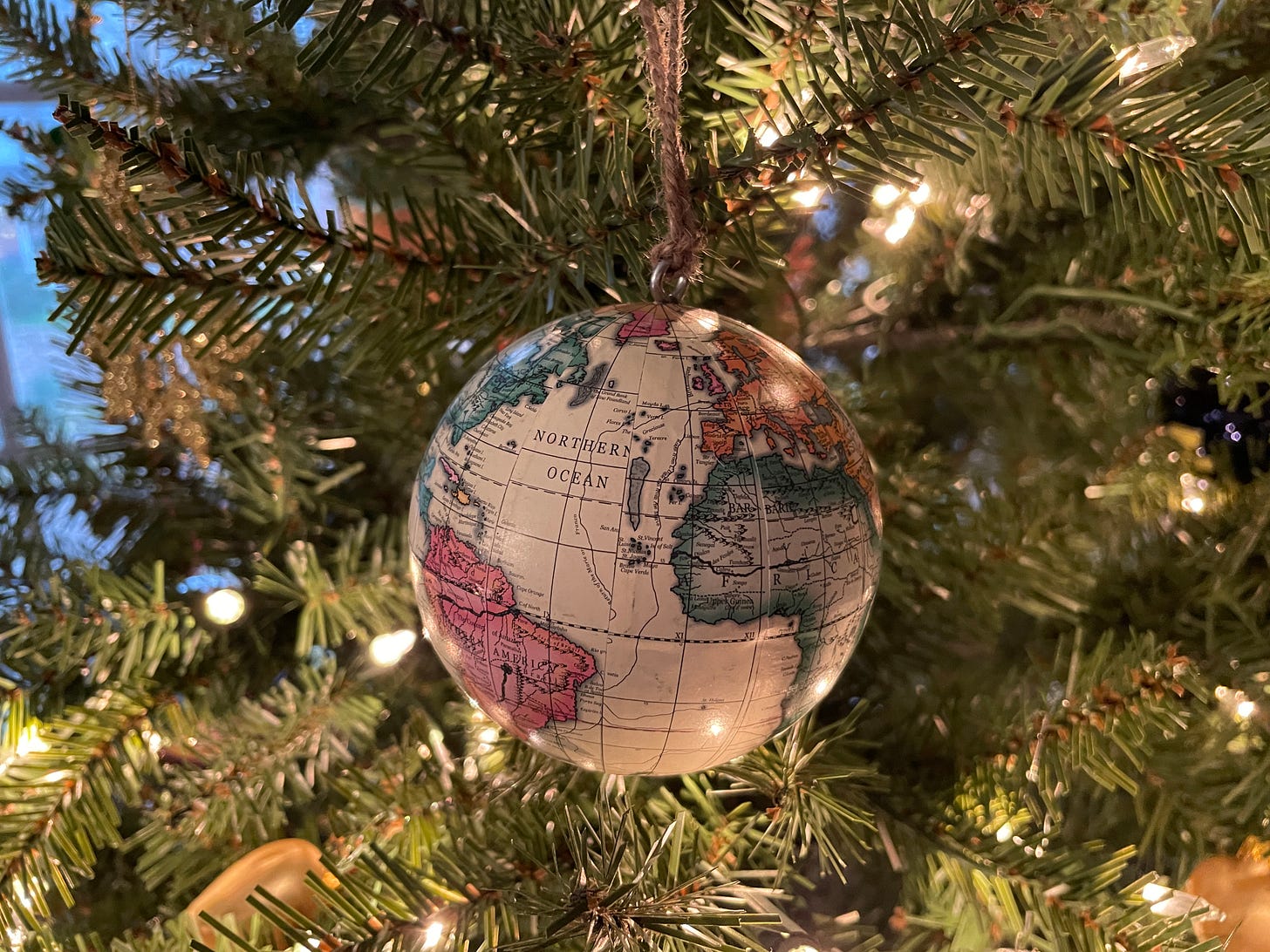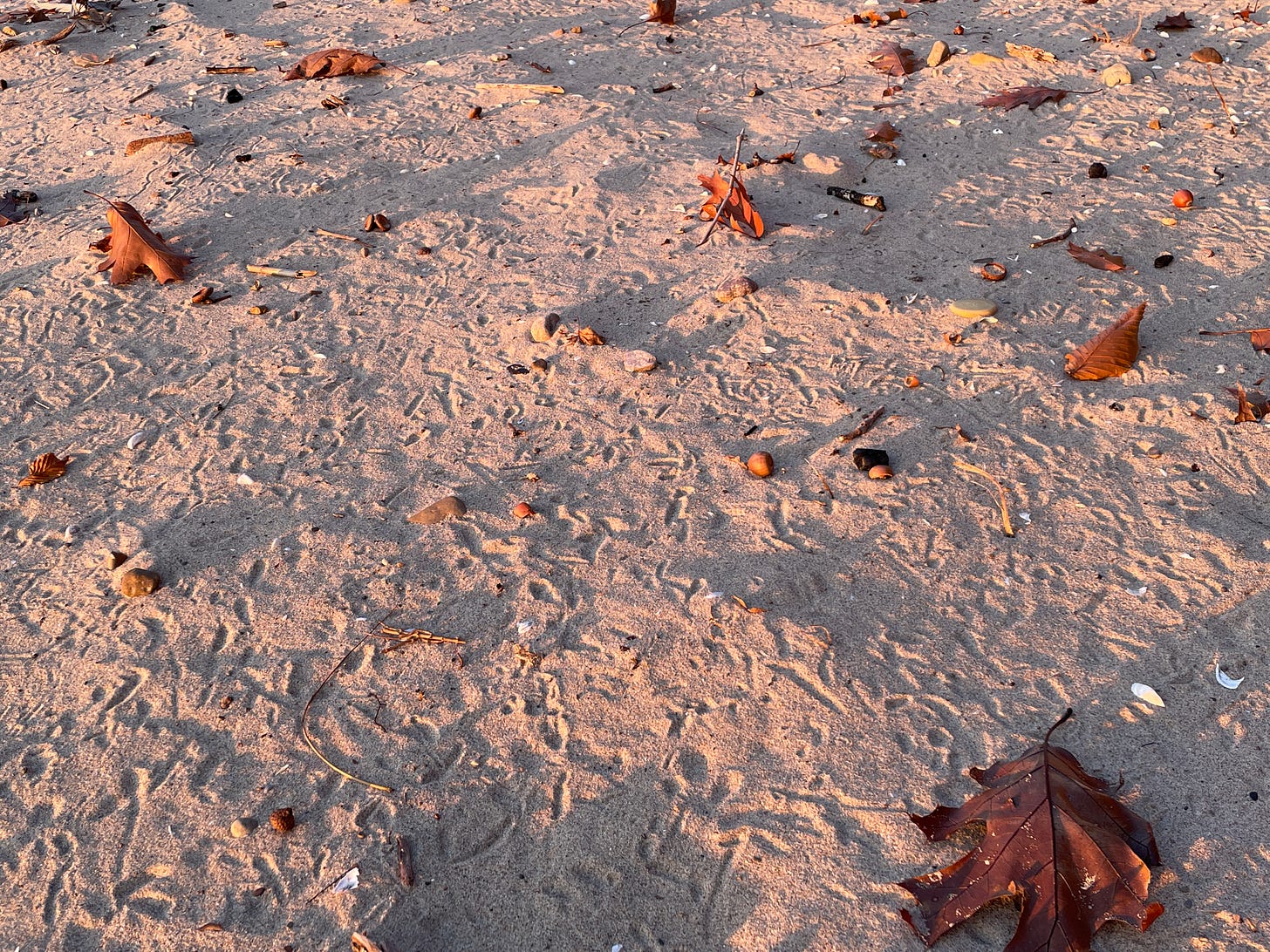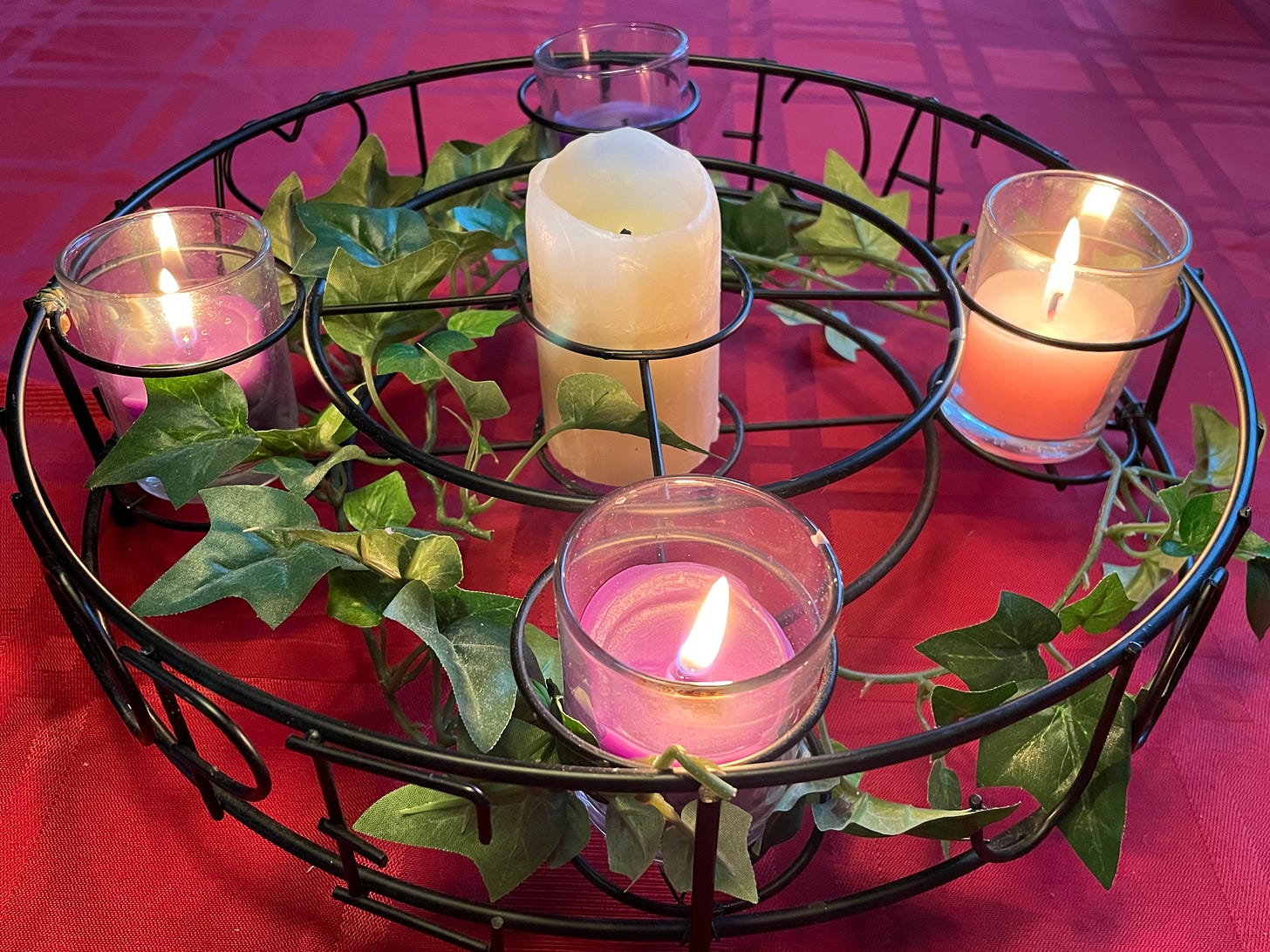Refugia News
Welcome to many new subscribers this week! Today’s newsletter will be a special edition; I will go back to the usual format on January 6—in the new year! For now, I want to say a hearty thank-you to all of you—for reading and recommending and commenting. Together we are helping to build a community of faith-driven people who care about climate issues and want to partner with God, each other, and the earth in the holy work of healing.
Hello from our tree. I actually managed to get the tree up this year before I finished my grading.
This Week in Climate News
The COP28 postmortems have of course been pouring in, and you have probably seen headlines. I’ll do a very, very quick sum-up.
In the last moments, the language settled on in the final agreement emerging from COP28 called for (among other things) “transitioning away from fossil fuels in energy systems, in a just, orderly and equitable manner.”
A big deal? Yes. But. (There’s always a but…) Once the language came out, the climate commentariat began with the analysis. Is this “historic,” because for the first time, the agreement actually mentions fossil fuels? Sure, it’s great that the agreement called for tripling renewable energy capacity globally, but what about all the loopholes and weasily language throughout? And of course the agreement is unenforceable—COP is not a government or law-making body. It all depends now on how effective international peer pressure can be and on what governments and businesses and people actually do. Well, sure. All of the above. It’s better than it could have been.
Want to really get in the weeds? You can read the full agreement here. The juicy stuff is on p. 5.
Emily Atkin of Heated cautioned against being too impressed by claims that this is an “historic” moment:
Just because a country or corporation did something “historic” and “unprecedented” to slow climate change, does not mean they did something laudable, effective, or in line with their responsibility. It merely means they did more than they ever did—which, in most cases, is very little.
With his usual wry conciseness, Bill McKibben remarked that the language about transitioning away is analogous to saying: “in an effort to reduce my headache, I am transitioning away from hitting myself in the forehead with a hammer.” McKibben urged, however, that the COP language can become a useful “tool for activists to use henceforth.” This moment could be meaningful, but “The rest of us are going to have to supply that meaning.”
Other achievements at COP include the establishment of a loss and damage fund—so far quite meagerly supplied. There was good work on conservation, climate finance, global food systems, and more. For a good summary, I suggest this interview by Steve Curwood with seasoned climate advocate Alden Meyer. Meyer was an insider at COP, and he offers helpful perspective on what was and was not achieved. He also lists a number of reasons for encouragement as we face a new year of climate work:
Well, what gives me hope is the fact that despite all the tensions and the disagreements, countries were able to come to a consensus on a path forward here. It’s not perfect, it’s not as ambitious as I would have liked to see. But it definitely is a historic shift in these negotiations to say we have to come to grips with our addiction to fossil fuels.
Gratuitous Lake Michigan beach photo, taken a few weeks ago.
A Gift
Enough news for now. Instead, I want to share with you a poem I wrote (which also appeared last week on the Reformed Journal blog). I’m usually a prose girl, but on occasion I do write poems. Do you know what a sestina is? Well, it’s a challenge. I gave it a try. See below for more explanation.
And if you like to listen to poems, I made a quick recording.
Third Sunday in Advent: A Sestina
These candlelit evenings, ancient hope glimmers like a gift,
gleams for a moment, then falters, slips to nothing
in the circling of the year, our loves still unsteady, our roots
still shallow, every promise a whisper of moth’s wings and still
pending. How long do we chant assiduous prayer, bear
these barely sustaining scraps, shudder with the ache
of all creation? Wrens raise their young in summer’s ache,
salmon spawn and shred, oaks push out leaves and gift
them to the redolent soil. The earth as ever strains to bear
our weight. We plod on, fumbling, learning again that nothing
is untouched, unscathed by us in this world too small still
for anything but love. O that you would rend us to the root,
mend the unrelenting genius of our human paradox whose roots
reach both to the dark insatiant and to the generous ache
that yearns beyond the weary wastelands toward verdure. Still
worse and better and worse, we vacillate, our qualms a scant gift
on the knife’s edge. Machines of power grind on and nothing
seems to change, though we insist history’s scripts do not bear
repeating. While elders intone pious deceptions, youth must bear
their shrouded future, mourn too soon, unearth what hidden roots
remain of kindness, decant what essence of beauty endures. Nothing
is impossible. Each true and gentle word retrieves from the ache
an awakened seed, each prophetic deed becomes a holy gift,
a stitch to heal the universal wound. From numbness, a still-
ness settles. We seek you, O bright darkness, solstitial noon! Still
we long for blazing presence, searing mercy we can neither bear
and live nor live without. Come, bursting fractal, merciful gift
of mystery and love! Come and more than hover, come and root
in rock-hard hearts, ignite us, hurricane us, earthquake our ache,
for we are empty caves, hollow breath, leviathans of nothing.
Forgive our routine praise, songs mouthed when we mean nothing
by them. Hear instead the harmonies that rise from souls still
calloused but tender and new beneath, singing through the ache,
reaching for bread and wine, sharing that we might bear
each other steady, enamored, shivering from crown to root
with the artful puzzle we live, trying to find some worthy gift
to offer. We have nothing much to give. Only what we bear
and grieve and treasure still, a scrap of wonder, remembered roots,
but mostly this obstinate ache. O God: the ache is the gift.
******
Author’s note
It’s usually not a good idea to “explain” a poem. Most writers believe a poem should stand on its own, without apparatus. I tend to agree with that, but in this case, because the sestina form is so weird, I thought you might enjoy a little explanation.
The sestina form goes back to 12th– or 13th-century France (according to Wikipedia) and continues to lure poets into its intricate, tangly web. The form is not based on meter or rhyme but on key words. The poet chooses six key words. Each line of each of the six stanzas has to end in one of the key words, and the key words must appear in a very particular, interwoven order. The final three lines (the “envoy”) gather all six words, also in a particular order.
The result is a kind of obsessive, round-and-round feel, which is why it struck me that Advent is a good time for a sestina. Whatever faith we practice, we are all aware this time of year of the circling of the seasons and of the religious festivals. They circle around every year, and the older you get, the faster the cycles seem to whirl. For me, the third week of Advent in the Christian calendar is also the darkest time of year, quite literally in Michigan, because it falls so close to the winter solstice.
With this poem, I wanted to capture the idea that our longing is not a lack of faith, but an expression of faith: the ache is the gift. We long for God’s presence because we have heard the promises and fallen in love with them. Even when “conflict thickens, faith is low, and love is waxing cold,” even in those moments when we are left with pretty much nothing but the ache, God reaches out to us and receives that ache as our gift. For Christians, we believe Jesus enters the empty spaces, and the Incarnation becomes real in us.
Trying to capture all this in a sestina was a fun challenge. It almost felt to me like working through a crossword puzzle. You figure out some key words, you know where they go, and then you have to figure out how to create the interconnections. I was surprised to find that you really do have to work from top to bottom, writing each stanza in order, which is not usually how poems develop. I also enjoyed trying to make every iteration of every key word a little bit different, looping syntax across line breaks, deploying all the shenanigans you have to manage in order to get a sestina to work.
May the glimmer of hope gleam long and bright for you this season. Until next time, be well.







Thank you for gifting us with this sestina! It's a new for for me.